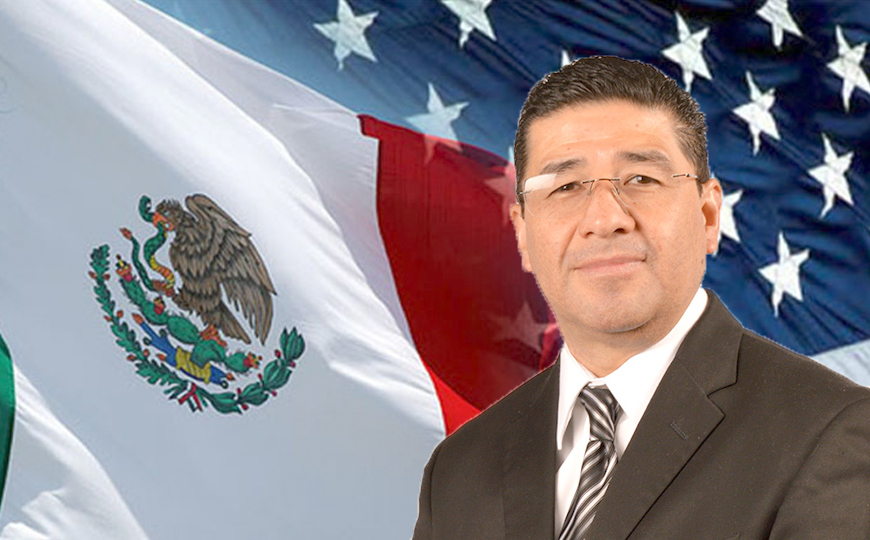With the end of the pre-campaign phase of our electoral process, Mexican voters could soon take their turn to vent their anger at the established political order. Like previous disruptive populist long shots : Brexit, Emmanuel Macron’s election in France and Donald Trump’s election in the United States – what might happen in our presidential election in July?
Leading his two rivals, Anaya and Meade by double digits in current polls, Andrés Manuel López Obrador, age 64, has been active in partisan politics for over 40 years. Despite a successful tenure as Mayor of Mexico City from 2000 to 2005, he lost two successive bids for president in in 2006 and 2012. Largely, that can be attributed to his inability to shake the image of a left-wing, populist rabble-rouser with Hugo Chávez-like tendencies. He reinforced this perception when he had himself sworn in as the “Legitimate President” in the aftermath of the 2006 election. This time around, however, he has maintained a disciplined focus on the two issues that overwhelm all others in the current electoral season: corruption and out-of-control violence. Mexico has just completed its most violent year with homicides topping 29,000. Add to that increases in other violent crimes, and Mexicans feel under siege. Consistently leading in the polls since last fall, López Obrador faces uninspiring opponents from the main parties and a handful of independents. His campaign message is relatively simple: Everyone else is corrupt and inept, while he is not. Sensitive to criticism that he is a radical in waiting, he has highlighted policy proposals of austerity, low taxes, transparency and nonintervention. The PRI, meanwhile, has done its best to depict him as sympathetic to, and longing for, authoritarian government, but there is little evidence that this strategy is working.
If elected, AMLO is likely to change Mexican policy towards the United States in at least three areas: energy exploration, security cooperation and support for democratic norms in Latin America. On energy, he said he would critically review all existing transnational exploration contracts, and he continues to view the opening of our oil industry to foreign investment as treasonous. An AMLO administration could very well slow down or halt bidding on new oil and gas fields in the Gulf of Mexico and refuse to approve new cross-border natural gas pipelines. Similarly, he could freeze existing security cooperation with U.S. agencies to fight drug trafficking and refuse to extradite cartel leaders if Donald Trump continues with his anti-immigrant policies. “These problems cannot be solved with coercive measures” he said a few months ago. “It’s not military assistance, or intelligence work, or delivery of helicopters and arms that will solve the problems of insecurity and violence in our country”. Perhaps one of the greatest risks in the issue of security is the one that refers to the proposal of amnesty with organized crime where it suggests that to eliminate insecurity in Mexico you have to sit down and talk with the criminals to reach a truce and It seems that if a government is willing to negotiate with criminals then we can expect the worst in the design and management of public policies. The foregoing leads me to think that if Lopez Obrador is considering making authoritative decisions as he showed in the previous comment, then it is feasible for Mexico to reach a totalitarian government where he is convinced of “to the hell with government institutions” and definitely the United States would not want to have economic and political relations with a country with an authoritarian regime.
He also criticized Trump’s trade policies, saying that threats to impose dramatic tariffs on goods heading from Mexico to the U.S. as a way to pay for Trump’s border wall and to reduce Mexico’s trade surplus are unacceptable. He also vows that, if elected, he would vigorously defend the rights of Mexican immigrants inside the U.S. using all 50 Mexican Consulates to spearhead the fight against Trump. Finally, López Obrador, who has never uttered an unkind word about the Castro brothers, Hugo Chávez or Nicolás Maduro, would likely withdraw Mexican diplomats from the mediating role they have played in the Venezuela crisis, and refuse to participate in U.N. peacekeeping operations in international hot spots.
What about the personal chemistry between López Obrador and Trump? Shortly after Trump was inaugurated last year, Lópes Obrador undertook a speaking tour of the United States, visiting Los Angeles, Chicago, El Paso and Phoenix, during which he repeatedly compared Trump to Adolf Hitler. In January of this year, calling Trump disrespectful toward Mexico, he aggressively vowed to “Put Trump in his place!” Well, what could possibly go wrong between the two of them?!!!




